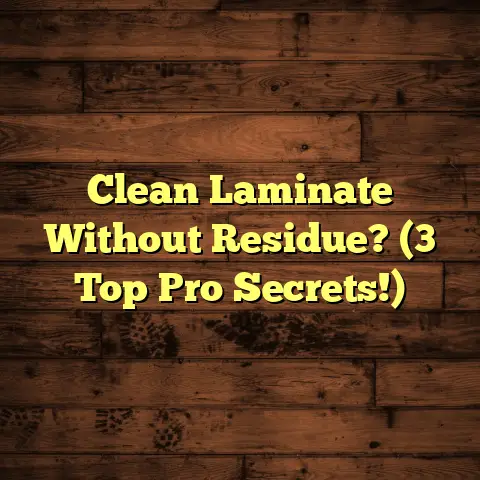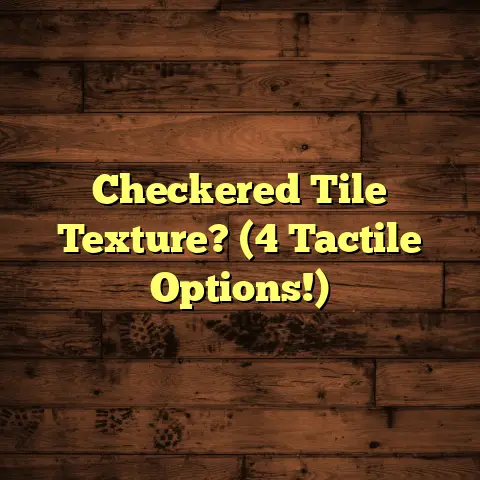Understanding Warranties On Engineered Hardwood Flooring
When investing in new hardwood floors for your home, it’s important to understand the warranties that come with engineered hardwood flooring.
Having a good warranty can provide peace of mind and protect against costly repairs or replacements if any problems arise with your floors.
In this comprehensive guide, we’ll break down everything you need to know about engineered hardwood flooring warranties.
We’ll cover what’s typically covered, warranty periods, limitations, care and maintenance tips to keep your warranty intact, and answers to frequently asked questions.
With the right information, you’ll be equipped to make the best flooring decision for your home and lifestyle.
Let’s get started!
What Does an Engineered Hardwood Flooring Warranty Cover?
Engineered hardwood flooring warranties generally cover manufacturing defects, premature wear, staining, fading, and moisture resistance depending on the type of finish.
Here are some of the most common coverage inclusions:
Manufacturing Defects
A quality engineered flooring warranty should cover any manufacturing defects for a specified length of time.
This includes flaws in milling, dimension, grading, and assembly that cause issues like cupping, buckling, and gaps. Most warranties will specify approved installation and maintenance methods required to qualify for coverage.
Finish Wear
Warranties often specify the level of finish wear that is considered premature based on application and level of traffic.
Coverage may include the cost of sanding or refinishing affected areas if the wear exceeds expectations for normal use. Make sure to review the wear warranty details carefully for exclusions.
Staining and Fading
Exposure to sunlight and spills can damage flooring aesthetics over time.
Many warranties provide limited protection against staining or uneven fading from UV light.
Just check provisions for curtains or rugs to mitigate light exposure, along with using floor protectors and prompt spill cleanup.
Moisture Resistance
For homes with moisture issues, look for engineered floors with warranties specifying resistance to water damage.
Coverage may include replacement or repairs for structural failures like cupping or delaminating plies caused by subfloor moisture. Proper installation is key for qualification.
Typical Engineered Hardwood Flooring Warranty Periods
Warranty durations often range based on the flooring component covered:
Lifetime Structural Warranty
Quality engineered floors are built to last, with the best warranties offering a lifetime guarantee against delamination or layer separation.
This covers the product itself, not labor costs.
25- to 50-Year Finish Warranty
You can expect an average of 25 to 50 years of finish wear coverage.
Higher-traffic applications may opt for maximal 50-year warranties for added protection.
5- to 15-Year Water Damage Warranty
For engineered floors with moisture warranties, 5 to 15 years is typical for coverage against failures like cupping and swelling caused by subfloor dampness.
Ensure proper installation and testing.
While lifetime warranties sound ideal, the longer coverage periods still come with limitations, exclusions, and pro-rated costs. Be sure to read all warranty details instead of just focusing on duration alone when choosing flooring.
What Does an Engineered Hardwood Flooring Warranty NOT Cover?
While warranties provide valuable protections, they do not cover every potential flooring problem.
Here are some common engineered hardwood flooring issues that warranties exclude:
Regular Wear
No warranty covers the normal wear-and-tear of daily living.
Gradual aesthetic changes like minor scratches and dents are inevitable and should be expected.
Improper Installation or Maintenance
Failing to follow the manufacturer’s installation guidelines and maintenance recommendations often voids the warranty.
Ensure these instructions are followed properly throughout the floor’s lifecycle.
Structural Failures in High-Moisture Areas
Excessive moisture exposure in bathrooms, laundry rooms, and leakages from appliances can compromise flooring structure over time.
Most warranties exclude coverage without proper moisture barriers.
Surface Damage from Abuse
Dragging furniture, unprotected pets, and damage from spiked heels or cleats falls outside warranty scope.
Take care to avoid denting or scratching floors.
Problems from Improper Subfloors
Creaking, squeaking, and separation issues related to uneven or unstable subfloors are generally excluded.
Proper subfloor prep is essential.
While the exclusions can seem extensive, a quality engineered floor following provided care guidelines should avoid most issues. Just be aware of warranty limitations before assuming every problem will be covered.
Tips for Keeping Your Engineered Flooring Warranty Intact
Your flooring warranty acts as an assurance that product defects will be addressed as promised.
To keep coverage protections valid over the long-term, be sure to follow these important care and maintenance tips:
Maintain Proper Home Conditions
Keeping home temperature and humidity at recommended levels year-round prevents excessive expansion and contraction that can void structural warranties.
Add Protective Mats by Entrances
Placing mats inside and outside entryways helps limit dirt, debris, moisture, and sand from prematurely wearing down the flooring finish.
Use Floor Protectors Under Furniture
Attach felt pads underneath chair and table legs along with furniture coasters.
This distributes weight and minimizes scratching or denting from heavy items.
Avoid Using Abrasive Cleaners
Skip the vinegar, ammonia, or harsh cleansers.
Stick to the manufacturer’s suggested cleaners and methods to prevent finish dullness.
Wipe Spills Quickly
Promptly soaking up any water or liquid messes prevents possible staining, warping, or moisture damage excluded from coverage.
Reapply Finish per Recommendations
To qualify for finish wear warranties lasting decades, expect to recoat high-traffic floors approximately every 3-5 years to restore luster and protect wood underneath.
By keeping your floors well-maintained and avoiding excluded damage causes, you can take full advantage of available warranty coverage over your flooring’s usable lifespan.
Engineered Hardwood Flooring Warranty FAQs
Still have some lingering questions about warranties on your engineered floors?
Here are answers to some of the most frequently asked questions:
What proof is required to make a warranty claim?
Most manufacturers require dated proof of purchase and documentation showing you have met all installation, maintenance, and home environment requirements per guidelines.
Photographs help demonstrate the suspected product defect.
How long does it take to process warranty claims?
Every company has different protocols, but it typically takes 4 to 6 weeks from claim submission to determination if covered, then additional time for arranging approved repairs or replacements.
Who pays for labor during warranty repairs?
In most cases, the warranty only covers material replacement costs.
Unless specified, the consumer generally pays for associated labor expenses like installation or refinishing fees.
What happens when a flooring style is discontinued?
For valid claims on discontinued engineered flooring styles, the manufacturer will typically replace affected planks with the closest comparable product available at time of claim.
Can warranties be transferred between homeowners?
Many engineered flooring warranties remain intact through one transfer to a new homeowner.
Just check provisions on transferability, documentation needs, and any applicable fees.
What happens once a warranty expires?
Once the warranty coverage period ends, the manufacturer is no longer liable for replacement costs associated with manufacturer defects.
Any repair or replacement expenses shift to the consumer.
With the right engineered hardwood and warranty protections suited to your lifestyle, you can enjoy beautiful floors for decades to come.
Be sure to carefully review all coverage terms during the purchase process for optimal protection well into the future.
Over time, even quality flooring shows signs of wear.
But by following provided care instructions, promptly addressing issues, and protecting your floors from unnecessary damage, warranties have your back.
Conclusion
Understanding engineered hardwood flooring warranties gives confidence that expensive repairs from premature issues will not fall solely on the consumer.
While exclusions apply and lifetime coverage remains limited, warranties provide reasonable protections if product defects arise through normal household use over an expected duration.
With the knowledge above empowering your flooring purchase and proper care reinforcing warranty qualifications, you can relax knowing you’ve made a lasting investment that will perform for years of enjoyment underfoot.





